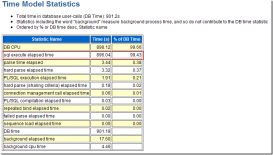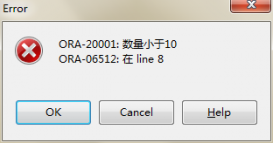昨天做完项目后让测试测试了一把,测试说分页查询貌似不起作用,翻到第4页以后,看到的数据结果都是相同的。
当时我就觉得很纳闷,不可能啊,分页组件应该是好的,咋可能有问题呢。带着疑问,我打开了自己的ide,在自己的机器上跑了一把,果然有问题。
有问题就要找问题:
首先把2条查询结果相同的sql打印出来到数据库中执行:
sql1:
select *
from (select t.*, rownum rn
from (select t_e_id, t_e_name, t_e_tel, t_e_areacode
from (select t.eid t_e_id,
t.ename t_e_name,
t.etel t_e_tel,
t.areaid t_e_areacode,
t.biz_delete_time,
decode(areaid, '0730', '0', '1') orderseq
from vr_enterprise t
where t.eid not in (select eid from t_biz_erelation))
order by orderseq, biz_delete_time nulls last) t
where rownum < 25)
where rn >= 19
sql2:
select *
from (select t.*, rownum rn
from (select t_e_id, t_e_name, t_e_tel, t_e_areacode
from (select t.eid t_e_id,
t.ename t_e_name,
t.etel t_e_tel,
t.areaid t_e_areacode,
t.biz_delete_time,
decode(areaid, '0730', '0', '1') orderseq
from vr_enterprise t
where t.eid not in (select eid from t_biz_erelation))
order by orderseq, biz_delete_time nulls last) t
where rownum <18)
where rn >= 12
结果显示大多数行是相同的。
为了找到问题所在,只有先一步一步的精简化sql,看在哪一步出的问题。
于是找到了,问题出现在where rownum<18的时候数据改变了,为什么加了个where条件结果就会变呢?
表示想不通啊。。。。。
没办法,只好baidu了,baidu了半天,都没人给个解释啊。。。。。
后来同事说,换个写法试试,于是改了另一种写法,如下:
select *
from (select t.*, rownum rn
from (select t_e_id, t_e_name, t_e_tel, t_e_areacode
from (select t.eid t_e_id,
t.ename t_e_name,
t.etel t_e_tel,
t.areaid t_e_areacode,
t.biz_delete_time,
decode(areaid, '0730', '0', '1') orderseq
from vr_enterprise t
where t.eid not in (select eid from t_biz_erelation))
order by orderseq, biz_delete_time nulls last) t)m
where m.rn >= 1 and m.rn <25
这个方法果然凑效,凑效是凑效,关键是为什么前面那种方法不行呢?抓问题要刨根问底。
看来baidu不行,得换google搜索了。google搜索总是喜欢被china government墙掉,没办法,网上只好找了个chrome插件才解决了。
找呀找找呀找,在oracle的ask tom上,tom详细的介绍了rownum的用法,在这里http://www.oracle.com/technetwork/issue-archive/2006/06-sep/o56asktom-086197.html
One important thing about using this pagination query is that the ORDER BY statement should order by something unique. If what you are ordering by is not unique, you should add something to the end of the ORDER BY to make it so.
看到这样一句话,原来用order by的时候还需要增加order by的唯一性,不然rownum就会有问题。哇哈哈哈,太开心了,功夫不费有心人呀,找到问题的症结了,当然就好解决了。
这权当是一次排错的经历,特此记录下来,看来google还是比baidu强大很多啊,以后要好好学英文,不然遇到问题没发解决。














